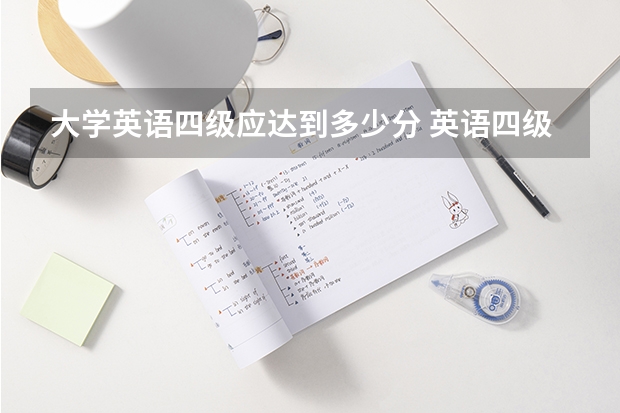去年大学英语四级考试真题 6月大学英语四级翻译真题附参考答案
2023-09-16 17:41:28 | 蜕变培训网

求2022年大学英语四级真题下载?
《历届四级真题》百度云网盘资源下载地址
链接:
?pwd=keki 提取码:keki英语四级一般指大学英语四级考试。 大学英语四级考试,即CET-4,College English Test Band 4的缩写,是由国家教育部高等教育司主持的全国性英语考试。内含:听力、真题、翻译、写作、答案解析等

2017年6月大学英语四级翻译真题附参考答案
2017年6月英语四级考试在6月17日上午进行,你考的怎么样了?下面我为大家带来2017年6月英语四级翻译及译文,希望可以为大家带来帮助。
2017年6月英语四级翻译答案试卷一:珠江【题目】
珠江是华南一大河系,流经广州市,是中国第三长的河流,仅次于长江和黄河。 珠江三角洲 (delta)是中国最发达的地区之一,面积约11,000 平方公里 。它在面积和人口方面也是世界上最大的城市聚集区。珠江三角洲九个最大城市共有5,700多万人口。上世纪70年代末 中国改革开放 以来,珠江三角洲已成为中国和世界主要经济区域和制造中心之一。
【参考译文】
The Pearl River, an extensive river system in southern China, flows through Guangzhou City. It is China’s third-longest river which is only after the Yangtze River and the Yellow River. The Pearl River Delta (PRD) is one of the most developed regions in China with an area of about 11,000 square kilometers. It is the largest urban area in the world in both size and population. The nine largest cities of PRD have a population of over 57 million in total. Since China's reform and openness was adopted by the Chinese government in the late 1970s, the Delta has become one of the leading economic regions and a major manufacturing center of China and the world.
【部分结构翻译】
河系:river system;
珠江三角洲:The Pearl River Delta;
城市聚集区:the largest urban area;
中国改革开放:China's reform and openness;
长江:the Yangtze River;
中国最发达的地区之一:one of the most developed regions in China;
2017年6月英语四级翻译答案试卷二:长江【题目】
长江是亚洲最长、世界上第三长的河流。长江流经多种不同的 生态系统 ,是诸多 濒危物种 的栖息地,灌溉了中国五分之一的土地。 长江流域 (river basin)居住着中国三分之一的人口。长江在中国历史、 文化 和经济上起着很大的作用。长江三角洲(delta)产出多达20%的中国 国民生产总值 。几千年来,长江一直被用于供水、运输和工业生产。长江上还坐落着世界上最大的水电站。
【参考译文】
The Yangtze River is the longest river in Asia and the third longest one in the world. Flowing through many different ecosystems, it is the habitat for a whole host of endangered species and irrigates one fifth of the land in China. One third of Chinese population live in the Yangtze river basin. The Yangtze river plays an important role in the history, culture and economy of China and contributes to as much as 20 percent of the Gross National Product of China. It has been used for water supply, transportation and industrial production for several thousand years. Also, on the Yangtze river lies the largest hydropower station in the world.
2017年6月英语四级翻译答案试卷三:黄河【题目】
黄河是亚洲第三、世界第六长的河流。“黄”这个字描述的是其河水浑浊的颜色。黄河发源于青海,流经九个省份,最后注入渤海。黄河是中国赖以生存的几条河流之一。 黄河流域 (river basin)是中国古代文明的诞生地,也是中国早期历史上最繁荣的地区。然而,由于极具破坏力的洪水频发,黄河曾造成多次灾害。在过去几十年里,政府采取了各种 措施 防止灾害发生。
【参考译文】
The Yellow River is the third longest in Asia and the sixth longest in the world. The word “yellow” describes the perennial color of the muddy water. Originating in Qinghai province, the Yellow River flows through nine provinces and finally empties into the Bohai Sea. It is one of several rivers for China to live on. Its basin was the birth place of ancient Chinese civilization and the most prosperous region in early Chinese history. However, because of the frequent devastating floods, the river has caused many disasters. In the past few decades, the government has taken various measures to prevent disasters.
【试题评析】
今年的 大学英语四级 翻译真题从选材上来看继续延续了之前的出题风格,依然是和中国特色及 传统文化 有关。去年的四级翻译真题就考过“黄色的象征”,“在 中国文化 中,黄颜色是一种很重要的颜色,因为它具有独特的象征意义。”从 句子 翻译的难度上看,四级对翻译能力的考查注重的是基本能力,没有太复杂的结构,比如大家很熟悉的not only... but also 的并列不就又出现了嘛!还有,遇到多个汉语谓宾结构时要注意 分词 结构的使用,这一直是语法当中要求要掌握的重点。所以之后备考 大学英语四六级 的同学们一定要好好学习历年英语四六级真题,因为会出现重复题材或者重复句型结构哦!
>>>点击下一页阅读“2017年6月大学英语四级翻译技巧”
2014年6月大学英语四级听力真题及答案
再过半个月就要进行英语四级考试了,这时候同学们可以赶紧做做真题来找到考试的感觉,通过做真题你会发现一些规律,找到解题方法。为大家准备了2014年6月英语四级考试听力真题及答案,一起来看看吧!有需要的朋友可以收藏起来!
2014年6月大学英语四级听力真题及答案
Listening Comprehension (30 minutes) Section A
Directions: In this section, you will hear 8 short conversations and 2 long conversations. At the end of each conversation, one or more questions will be asked about what was said. Both the conversation and the questions will be spoken only once. After each question there will be a pause. During the pause, you must read the four choices marked A), B), C) and D), and decide which is the best answer. Then mark the corresponding letter on Answer Sheet 1 with a single line through the centre.
注意:此部分试题请在答题卡1上作答。
1. A. See a doctor about her strained shoulder B.Use a ladder to help her reach the tea. C.Replace the cupboard with a new one. D.Place the tea on a lower shelf next time.
1. W: I can’t seem to reach the tea at the back of the cupboard。 M: Oh„ Why don’t you use the ladder? You might strain your shoulder。 Q: What does the man suggest the woman do?
2. A. At Mary Johnson’s B. In an exhibition hall C. At a painter’s studio. D. Outside an art gallery.
2. W: Since it’s raining so hard, let’s go and see the new exhibits。 M: That’s a good idea. Mary Johnson is one of my favorite painters。 Q: Where does the conversation most probably take place?
3. A. The teacher evaluated lacks teaching experience.
B. She does not quite agree with what the man said. C. The man had better talk with the students himself. D. New students usually cannot offer a fair evaluation.
3. M: I hear the students gave the new teacher an unfair evaluation。 W: It depends on which student you are talking about。 Q: What does the woman imply?
4. A. He helped Doris build up the furniture. B. Doris helped him arrange the furniture. C. Doris fixed up some of the bookshelves. D. He was good at assembling bookshelves.
4. W: It must have taken you a long time to fix up all these book shelves。 M: It wasn’t too bad. I got Doris to do some of them。 Q: What does the man mean?
5. A. He doesn’t get on with the others. B. He doesn’t feel at ease in the firm. C. He has been taken for a fool. D. He has found a better position.
5. W: Rod, I hear you’ll be leaving at the end of this month. Is it true?
M: Yeah. I’ve been offered a much better position with another firm. I’d be a fool to turn it down。 Q: Why is the man quitting his job?
6. A. They should finish the work as soon as possible. B. He will continue to work in the garden himself. C. He is tired of doing gardening on weekends. D. They can hire a gardener to do the work.
6. W: I honestly don’t want to continue the gardening tomorrow, Tony? M: Neither do I. But I think we should get it over with this weekend。 Q: What does the man mean?
7. A. The man has to get rid of the used furniture. B. The man’s apartment is ready for rent. C. The furniture is covered with lots of dust. D. The furniture the man bought is inexpensive.
7. W: You’ve already furnished your apartment? M: I found some used furniture that was dirt cheap。 Q: What do we learn from the conversation?
8. A. The man will give the mechanic a call. B. The woman is waiting for a call. C. The woman is doing some repairs. D. The man knows the mechanic very well.
8. W: Has the mechanic called the bus repairers?
M: Not yet .I’ll let you know when he calls。 Q: What do we learn from the conversation?
9. A. She had a job interview to attend. B. She was busy finishing her project. C. She had to attend an important meeting. D. She was in the middle of writing an essay.
Question: 9. Why couldn’t the woman’s roommate attend the Shakespearean English class that afternoon? W: Nothing, it’s just that she submitted a job application yesterday and the company asked her in for an interview today. She’s afraid she won’t be able to attend your class this afternoon though. I’m calling to see whether it would be OK if I gave you her essay. Janet said it’s due today。
10. A. Accompany her roommate to the classroom. B. Hand in her roommate’s application form. C. Submit her roommate’s assignment. D. Help her roommate with her report.
Question: 10. What favor is the woman going to do for her roommate?
11. A. Where Dr. Ellis’s office is located. B. When Dr. Ellis leaves his office. C. Directions to the classroom building. D. Dr. Ellis’s schedule for the afternoon.
Question: 11. What does the woman want to know at the end of the conversation?
W: Fine, please tell her I’ll be there at 4:00. And Dr. Ellis, one more thing, could you tell me where your office is? Janet told me where your class is, but she didn’t give me directions to your office。
12. A. He find it rather stressful. B. He is thinking of quitting it. C. He can handle it quite well. D. He has to work extra hours.
Question: 12. What does the man say about his job?
M: Not bad, Jane. I’m involved in several projects and it’s a long working day. But I’m used to that so it doesn’t bother me too much。
13. A. The 6:00 one B. The 6:30 one. C. The 7:00 one D. The 7:30 one Question: 13. Which train does the man take to work every day?
M: It was terrible at first, especially getting up before dawn to catch that 6:30 train. But it’s bearable now that I’ m used to it。
14. A. It is an awful waste of time. B. He finds it rather unbearable. C. The time on the train is enjoyable. D. It is something difficult to get used to.
Question: 14. How does the man feel about commuting to work every day now?
W: Don’t you think it’s an awful waste of time? I couldn’t bear to spend three hours sitting in a train every day。
M: I used to feel the same as you. But now I quite enjoy it。
15. A. Reading newspaper. B. Chatting with friends. C. Listening to the daily news. D. Planning the day’s work.
Question: 15. How does the man spend his time on the morning train?
W: How do you pass the time? Do you bring some work with you to do on the train?
M: Ah, that’s a good question. In the morning, I just sit in comfort and read the papers to catch up with the news. On the way home at night, I relax with a good book or chat with friends or even have a game of bridge。
Section B
Directions: In this section, you will hear 3 short passages. At the end of each passage, you will hear some questions. Both the passage and the questions will be spoken only once. After you hear a question, you must choose the best answer from the four choices marked A), B), C) and D). Then mark the corresponding letter on Answer Sheet 1 with a single line through the centre.
注意:此部分试题请在答题卡1上作答。
Passage One
Questions 16 to 18 are based on the conversation you have just heard.
16. A) Ignore small details while reading. B) Read at least several chapters at one sitting. C) Develop a habit of reading critically.
D) Get key information by reading just once or twice.
Question: 16. What should American college students do to cope with their heavy reading assignments? 蜕变培训网
17. A) Choose one’s own system of marking. B) Underline the key words and phrases. C) Make as few marks as possible. D) Highlight details in a red color.
Question: 17. What suggestion does the speaker give about marking a textbook?
18. A) By reading the textbooks carefully again. B) By reviewing only the marked parts. C) By focusing on the notes in the margins. D) By comparing notes with their classmates.
Question: 18. How should students prepare for an exam according to the speaker?
Passage Two
Questions 19 to 21 are based on the conversation you have just heard
19. A) The sleep a person needs varies from day to day. B) The amount of sleep for each person is similar. C) One can get by with a couple of hours of sleep. D) Everybody needs some sleep for survival.
Question: 19. What is taken for granted by most people?
20. A) It is a made-up story. B) It is beyond cure. C) It is a rare exception. D) It is due to an accident.
Question: 20. What do doctors think of Al Herpin's case?
21. A) His extraordinary physical condition. B) His mother’s injury just before his birth. C) The unique surroundings of his living place. D) The rest he got from sitting in a rocking chair.
Question: 21. What could have accounted for Al Herpin's sleeplessness?
Passage Three
Questions 22 to 25 are based on the conversation you have just heard.
22. A) She invested in stocks and shares on Wall Street. B) She learned to write for financial newspapers. C) She developed a strong interest in finance. D) She tenderly looked after her sick mother.
Question: 22. What do we learn about Hetty Green as a child?
23. A) She made a wise investment in real estate. B) She sold the restaurant with a substantial profit. C) She got 1.5 million dollars from her ex-husband. D) She inherited a big fortune from her father.
Question: 23. How did Hetty Green become rich overnight
24. A) She was extremely mean with her money. B) She was dishonest in business dealings. C) She frequently ill-treated her employees. D) She abused animals including her pet dog. Question: 24. Why was Hetty Green much hated?
25. A) She made a big fortune from wise investment. B) She built a hospital with her mother’s money. C) She made huge donations to charities. D) She carried on her family’s tradition.
Question: 25. What do we learn about Hetty's daughter?
Section C
Direction: In the section, you will hear a passage three times. When the passage is read for the first time, you should listen carefully for its general idea. When the passage is read for the second time, you are required to fill in the blanks with the exact words you have just heard. Finally, when the passage is read for the third time, you should check what you have written.
注意:此部分试题请在答题卡1上作答。
Among the kinds of social gestures most significant for second-language teachers are those which are ___(26)___ in form but different in meaning in the two cultures. For example, a Colombian who wants someone to ___(27)___ him often signals with a hand movement in which all the fingers of one hand, cupped, point downward as they move rapidly ___(28)___ .Speakers or English have a similar gesture through the hand may not be cupped and the fingers may be held more loosely, but for them the gesture means goodbye or go away, quite the ___(29)___ of the Colombian gesture. Again, in Colombian, a speaker of English would have to know that when he ___(30)___height he most choose between different gestures depending on whether he is ___(31)___ a human being or an animal. If he keeps the palm of the hand ___(32)___the floor, as he would in his own culture when making known the height of a child, for example, he will very likely be greeted by laughter, in Colombia this gesture is___(33)___for the description of animals. In order to describe human beings he should keep the palm of his hand ___(34)___to the floor. Substitutions of one gesture for the other often create not only humorous but also___(35)___ moment. In both of the examples above, speakers from two different cultures have the same gesture, physically, but its meaning differs sharply.
1.答案:B Use a ladder to help her reach the tea.
2.答案:D Outside an gallery art.
3.答案:D. New students usually cannot offer a fair evaluation.
4.答案:C Doris fixed up some of the bookshelves.
5.答案:D He has found a better position.
6.答案:A They should finish the book as soon as possible.
7.答案:D The furniture the man bought is inexpensive.
8.答案:B The woman is waiting for the call.
9.答案:A She had a job interview to attend
10.答案:C Submit her roommate's assignment
11.答案:A Where Dr. Ellis’s office is located.
12.答案:C He can handle it quite well
13.答案:B The 6:30 one
14.答案:C The time on the train is enjoyable
15.答案:A Reading newspapers.
Section B
Passage One
16.答案:D Get key information by reading just once or twice
17.答案:A Choose one's own system of marking
18.答案:B By reviewing only the marked parts.
Passage Two
19.答案:D Everybody needs some sleep for survival.
20.答案:C It is a rare exception
21.答案:B His mother's injury just before his birth.
Passage Three
22.答案:C She developed a strong interest in finance
23.答案:D She inherited a big fortune from her father
24.答案:A She was extremely mean with her money
25.答案:B She built a hospital with her mother's money
Section C
答案: 26. identical 27. approach 28. back and forth 29. opposite 30. indicates 31. referring to 32. parallel to 33. reserved 34. at the right angle 35. embarrassing
以上就是为大家提供的2014年6月英语四级考试听力真题及答案,希望对您有帮助!想要成功拿下12月份的英语四级,您还需掌握更多考试技巧, CTRL+D 收藏并持续关注本站有惊喜,将竭诚助您考试一臂之力!
猜你喜欢 :
以上就是蜕变培训网为大家带来的去年大学英语四级考试真题 6月大学英语四级翻译真题附参考答案,希望能帮助到大家,了解更多相关信息,敬请关注蜕变培训网。
2017年12月大学英语四级阅读理解试题及答案为你提供“2017年12月大学英语四级阅读理解试题及答案”,希望能帮助到你,更多英语四级考试资讯,网站将持续更新,敬请关注!2017年12月大学英语四级阅读理解试题及答案Flyingoveradesertareainanairplane,twoscientistslookeddownwithtrainedeyesattreesa

四级考试三套卷子有什么区别吗?英语四级三套题的区别如下:1、听力不同:英语四级试卷分为三套卷子,每套卷子听力内容都不一样,有时也可能是两套。2、四级阅读理解不同:每套卷子中试题内容都不一样,阅读部分可能存在略微的难度差异。3、四级作文以及翻译不同:每套卷子翻译以及作文题目都是不同的。四级的翻译三套题的主题词不同,但会像是一个系列,例如之前考过的长江、黄河、珠江。

2017年6月大学英语四级翻译真题附参考答案2017年6月英语四级考试在6月17日上午进行,你考的怎么样了?下面我为大家带来2017年6月英语四级翻译及译文,希望可以为大家带来帮助。2017年6月英语四级翻译答案试卷一:珠江【题目】珠江是华南一大河系,流经广州市,是中国第三长的河流,仅次于长江和黄河。珠江三角洲(delta)是中国最发达的地区之一,面积约11,000

2017年6月大学英语四级翻译真题附参考答案2017年6月英语四级考试在6月17日上午进行,你考的怎么样了?下面我为大家带来2017年6月英语四级翻译及译文,希望可以为大家带来帮助。2017年6月英语四级翻译答案试卷一:珠江【题目】珠江是华南一大河系,流经广州市,是中国第三长的河流,仅次于长江和黄河。珠江三角洲(delta)是中国最发达的地区之一,面积约11,000

大学英语四级翻译真题解析【第三套】——乌镇乌镇是浙江的一座古老水镇,坐落在京杭大运河畔。这是一处迷人的地方,有许多古桥、中式旅店和餐馆。在过去一千年里,乌镇的水系和生活方式并未经历多少变化,是一座展现古文明的博物馆。乌镇所有房屋都用石木建造。数百年来,当地人沿着河边建起了住宅和集市。无数宽敞美丽的庭院藏身于屋舍之间,游客们每到一处都会有惊喜和发现。分句解析:第一句:乌镇是浙

2020年9月英语四级翻译真题及答案2020年12月份的英语四级考试正在迈着矫健的步伐向我们走来,下面是我整理的2020年9月英语四级开始翻译真题及答案,仅供参考!2020年9月英语四级考试翻译真题卷一翻译:茅台(Moutai)是中国最有名的白酒,在新中国成立前夕,被选为国宴用酒。据说赤水沿岸的村民四千年前就开始酿造茅台。在西汉时期,那里的人们生产出了高质量的

大学英语四级考试听力及答案23年6月大学英语四级考试听力解析,22-25题,附原文中文翻译2023年6月大学英语四级考试听力部分,第22-25题,原文是关于午睡价值的科技小文,难度不大,和高考英语听力最后一篇的难度差不多,在大学听力考试里面,应当算作是送分题了。全文一共出现14处影响理解的词组短语固定用法和难词偏词,《高中英语1.5万考点》和《睡眠记忆法配套词表》全部命中。

英语四级翻译:大熊猫(2014年12月)2014年12月英语四级考试在今天上午结束了,翻译一直是英语四级通过的关键,许多考生成败都在于英语翻译。今天出国第一时间为大家带来2014年12月四级翻译部分。希望大家喜欢!考试结束了,也不要忘记温故知新哦!真题:Thegiantpandaisadocileanimalwithuniqueblackandwhitefur.Becaus
- 什么是大学英语四六级 是有年龄学历限制的吗
- 2023年6级考试时间下半年(四级报名截止时间2023下半年)
- 求大学英语四级历年真题下载地址,有没有好的推荐(我需要 四六级历年真题,百度网盘的链接有没有呀~求哥哥姐姐们分享)
- 大学几年级可以考英语四级(我是英语专业的,大学几年级考四六级,专四专八?最好具体点,是上半学期还是下半学期?谢谢!)
- 四六级几号考(四六级考试时间 英语听力耳机 济大学一)
- 六级报名和考试时间 英语四级考试 关于英语四六级考试的~~
- 4级和6级满分多少分?
- 大学英语四六级考试写作题型分析及范文(3)(英语六级的书信作文)
- 广东英语四级考试时间(广东省英语四六级考试报名时间)
- 四六级成绩报告单编号是什么意思
- 江苏省2023年四六级考试时间(江苏省四级考试时间2022年下半年)
- 湖北英语四六级考试时间2023 湖北四六级考试时间2023下半年 下半年湖北英语四六级考试安排
-
 大学英语四级考试仍有价值 考英语四六级真的有用吗?
大学英语四级考试仍有价值 考英语四六级真的有用吗?2023-09-16 15:58:42
-
 大学英语四级考试口试题型 大学英语四级考试有哪些题型?
大学英语四级考试口试题型 大学英语四级考试有哪些题型?2023-09-16 02:17:59
-
 大学英语四级考试如何调频率 考四级收音机怎么调频
大学英语四级考试如何调频率 考四级收音机怎么调频2023-09-16 02:05:02
-
 拉萨师范大学英语四级考试 四级英语考试报名时间是什么时候啊?
拉萨师范大学英语四级考试 四级英语考试报名时间是什么时候啊?2023-09-16 02:51:47
-
 大学英语四级应达到多少分 英语四级需要多少分
大学英语四级应达到多少分 英语四级需要多少分2023-09-30 18:46:49
-
 大学英语四级考试赋分标准 英语四级分数赋分标准
大学英语四级考试赋分标准 英语四级分数赋分标准2023-09-09 04:27:27